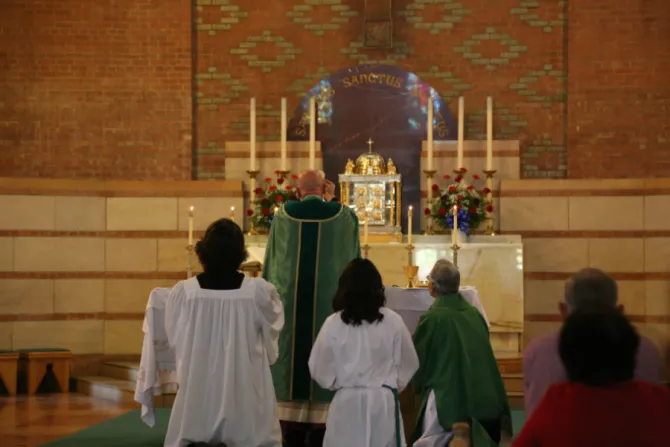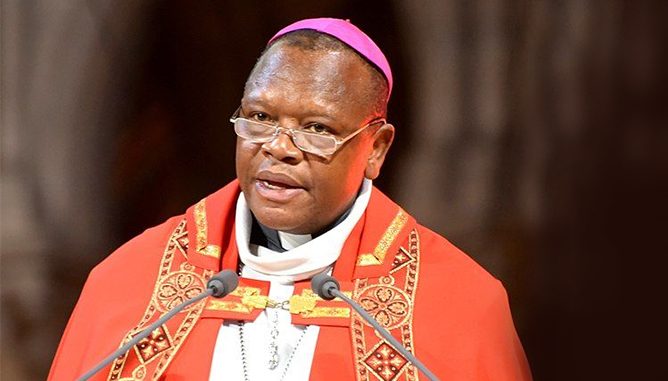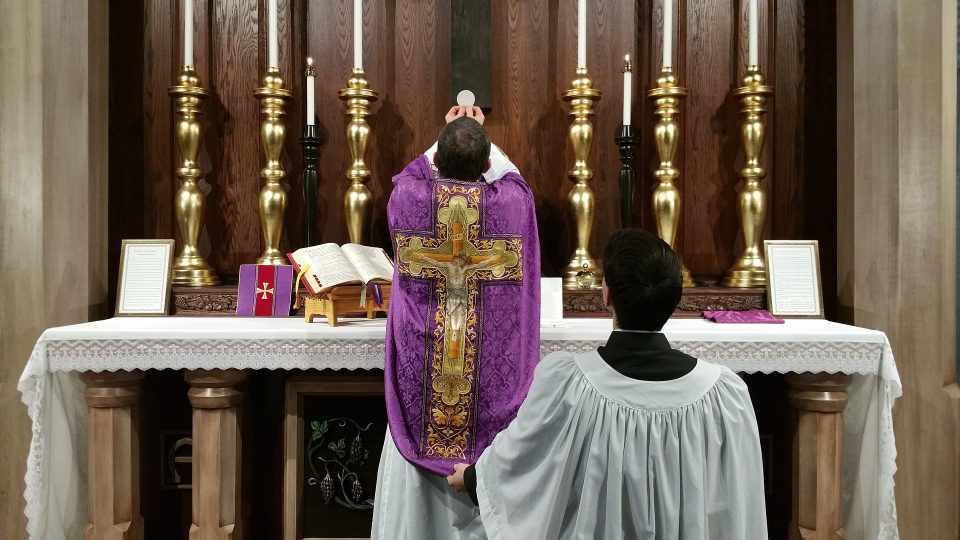Salvation and Redemption in the Psalms, and in Our Hearts, by Dr. Jeff Mirus
March 25, 2024Border Patrol Chief: Terrorists May Be Among Migrants, by Nick Koutsobinas
March 25, 2024
A Letter from Bishop James S. Wall
Celebrating Mass Ad Orientem, Ad Deum, and Versus Populum
My dear friends in Christ:
Recently Pope Emeritus Benedict XVI released a powerful letter, in which he touched on a number of topics, including especially the sexual abuse crisis that has impacted the Church and even society as a whole. In his letter, he also addressed the Eucharist. He acknowledged, and rightfully so, that we have become too lax in our approach to the Eucharist. There were a number of reasons for this, even extreme cases when Holy Communion has been distributed to non-Catholics at weddings and other large events for the sake of “inclusion.” We know, however, that such “inclusivity” is actually quite dangerous, for it can put someone’s soul at risk in the name of not hurting feelings. Remember St. Paul: “Whoever, therefore, eats the bread or drinks the cup of the Lord in an unworthy manner will be guilty of profaning the body and blood of the Lord. Let a man examine himself, and so eat of the bread and drink of the cup. For anyone who eats and drinks without discerning the body eats and drinks judgment upon himself” (1 Cor. 11:27-29). We would do well to remember, then, that the Eucharist is not simply a nice “sign” or “symbol” of communion with God, but rather truly is communion with God. (In fact, it is so far from being a mere symbol in the modern sense of that term, that Flannery O’Connor once famously said that “if it is just a symbol, to hell with it!) For the Eucharist is nothing less than the very Body, Blood, Soul, and Divinity of Jesus Christ, and the “source and summit of the Christian life” (Lumen gentium, 11). …







